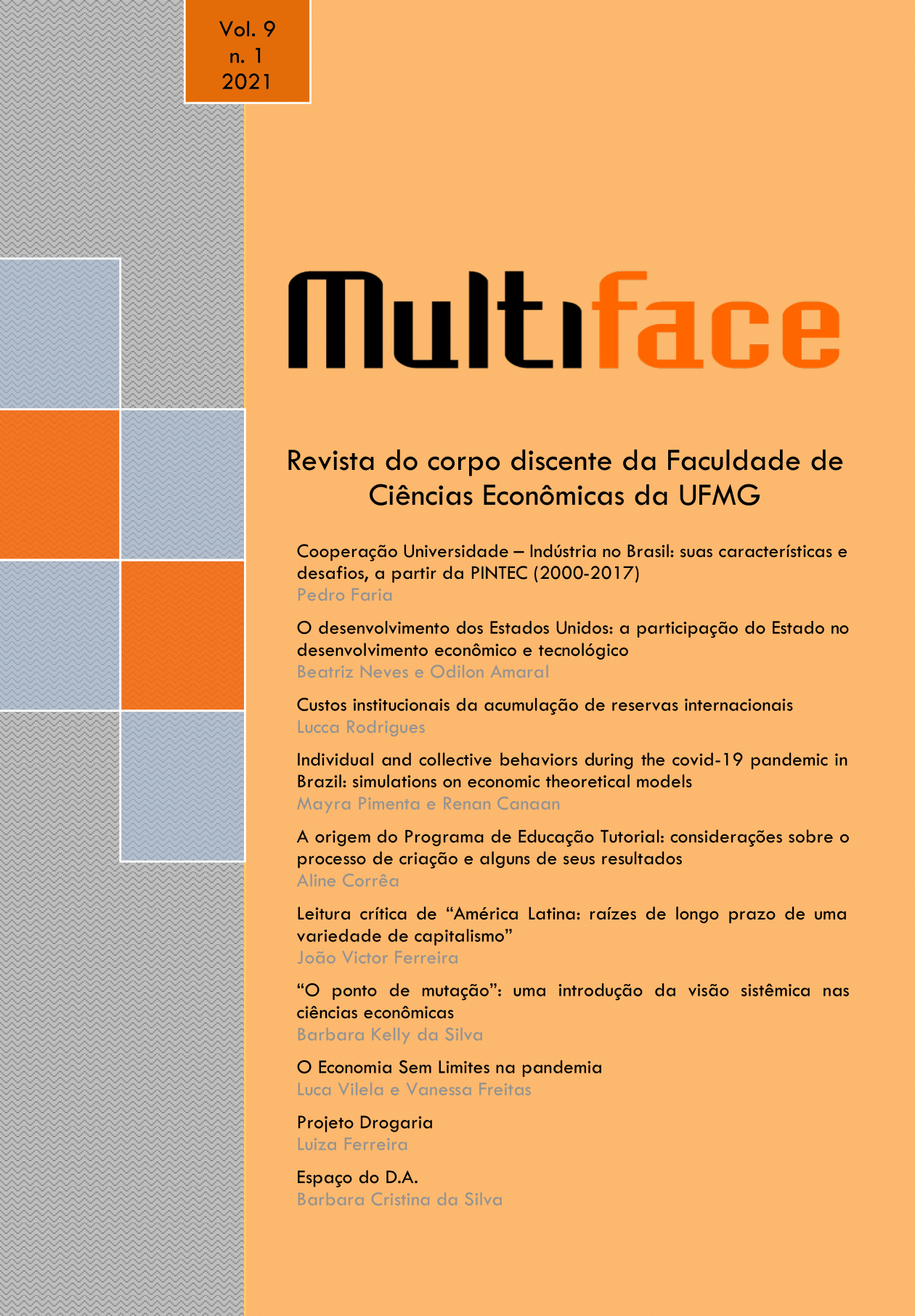INDIVIDUAL AND COLLECTIVE BEHAVIORS DURING THE COVID-19 PANDEMIC IN BRAZIL:
simulations on economic theorical models
DOI:
https://doi.org/10.29327/223163.9.1-4Resumo
This paper aims to address the decision-making process of individual and collective behavior during the COVID-19 pandemic in Brazil. To answer this research question, our analysis will make use of economic theoretical models, namely game theory and the tragedy of commons, to simulate individual, firms, and collective behavior in the pandemic in Brazil. Analysis point that, according to the Prisoner’s dilemma approach, citizens, as well as firms, are inclined to mutually defect from changing their behavior to comply with social distancing measures. Consequently, they will be worse off compared to a group-centered decision. Also, the framework on the tragedy of the commons predicts that individuals, taking self-centered decisions, opt out of the sanitary measures. This will lead to the depletion of the collective benefit, i.e. public health. Therefore, public intervention is justified to coordinate individuals’ behavior because citizens are better off when everyone complies with social distancing measures.


